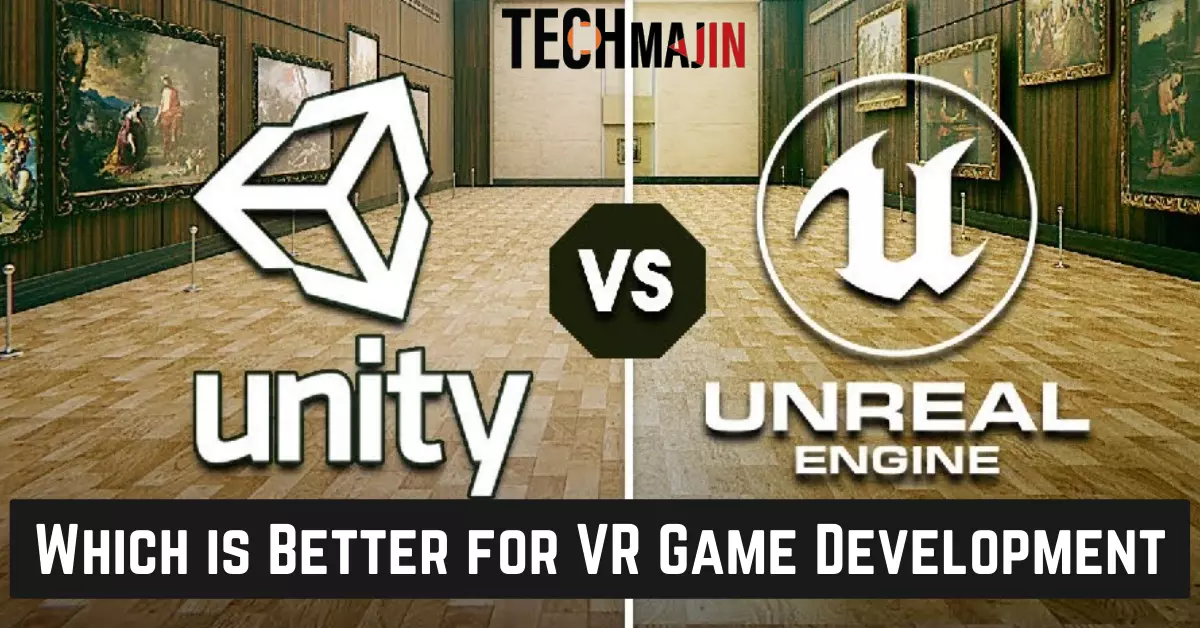The virtual reality gaming industry is growing rapidly, with new advancements in technology daily. With the number of options available, deciding which game engine to use for your project can be difficult. In this article, we’ll compare two of the most popular VR game engines: Unreal Engine and Unity.
We’ll discuss their features, pros and cons, and how they can help you build a successful VR game. After reading this article, you should better understand which engine is right for your project.
Let’s get started!
History of VR Game Development
Virtual Reality (VR) has been an area of interest since its inception in the 1950s. It is a rapidly evolving field with advances made every year by developers and gamers alike. Virtual reality has come a long way, since the first 3D game, Spacewar!, released in 1962, to modern VR games such as Robo Recall and Beat Saber.
The industry experienced major advancements when large players like Oculus Rift and HTC Vive entered the market in 2016. This provided more accessible hardware for gamers to enjoy the immersive world of VR gaming.
Unreal For Game Development
Unreal is a popular game engine developed by Epic Games, allowing developers to create high-quality 3D games quickly. Unreal has become one of the top choices for VR game development due to its support for multiple headsets and platforms and its wide range of features and tools for creating immersive virtual worlds. It offers powerful features like real-time lighting and rendering, advanced physics simulations, robust scripting capabilities, and intuitive animation systems.
Its graphical user interface makes it easy to set up levels or customize characters with minimal effort. Additionally, Unreal includes a library of pre-made assets like materials or sound effects that can be used in projects. An Unreal game development company can also create custom assets to fit their project’s unique needs.
Pros
- A wide range of tools is available for VR game development.
- Highly optimized engine built for performance.
- Easy to use graphical user interface (GUI) and tools.
- Supports multi-platform development
Cons
- Requires significant computing power to run effectively.
- Not suitable for small-scale projects
Unity For Game Development
Unity is an incredibly popular game engine used to develop various games for multiple platforms. It is highly versatile, allowing developers to create 2D and 3D games and experiences for computers, consoles, mobile devices, web browsers, and virtual reality systems. Unity also features powerful tools such as its visual scripting language called “Playmaker,” making it easier to focus on the creative aspects of game development instead of writing code.
Moreover, a Unity3d game development company can easily find the necessary software and hardware resources, as Unity supports many platforms.
Pros
- Easy to use drag and drop interface
- Supports all major platforms: Oculus, HTC Vive, HoloLens, Windows, Android, Mac OS X, and more
- Powerful editor with real-time updates allows quick adjustments while developing the project
- Robust physics engine for realistic game simulations
- A visual scripting language allows non-programmers to create complex games
Cons
- Complex projects may require more experienced staff members familiar with the engine
- Can be expensive depending on the licenses and plugins used in development.
Key Differences between Unreal and Unity for VR Game Development
The major basis of the distinction between Unreal and Unity for VR game development are as follows:
Engine Performance
The Unreal Engine is known to have a more robust and advanced feature set than Unity. It also offers extensive support for high-end graphics, making it the preferred choice for developers who want to create visually stunning games.
On the other hand, Unity has a simpler engine that doesn’t require such powerful hardware or programming knowledge as Unreal. It is often used by indie game developers looking for an efficient option.
Development Cost
Unreal Engine comes with a 5% royalty fee when you release your game commercially, which can add up over time. In comparison, Unity does not charge any licensing fees unless your company generates higher revenue for a single game.
Documentation and Support
The Unreal Engine offers comprehensive documentation and tutorials to help developers quickly get up and running with their projects. Unity also provides thorough documentation, but it is less expansive and easy to understand than the support offered by Unreal. Additionally, Unreal has an active community of developers willing to lend their expertise when needed. Unity’s community is smaller but still helpful in many cases.
Cross-Platform Development
Unity is known for providing better cross-platform support than Unreal. It has a wide range of tools and plugins that allow developers to create games for multiple platforms, such as Oculus, HTC Vive, HoloLens, Android, iOS, Xbox One, PlayStation 4, Nintendo Switch, and more. On the other hand, Unreal offers limited support for different platforms, which can be time-consuming to learn.
The Bottom Line
Both of these game engines are powerful and have their pros and cons. Ultimately, the choice of which one to use depends on the type of game you want to develop, your budget, and how quickly you need to get it done. No matter which engine you choose, creating games for any platform is always a learning curve.
Therefore, be prepared to devote time and effort to mastering Unity or Unreal Engine. With enough dedication and practice, you will soon be able to create amazing games that captivate players worldwide!
Read Next:- Role of AI-Generated Human Faces in Video Games & Simulations






